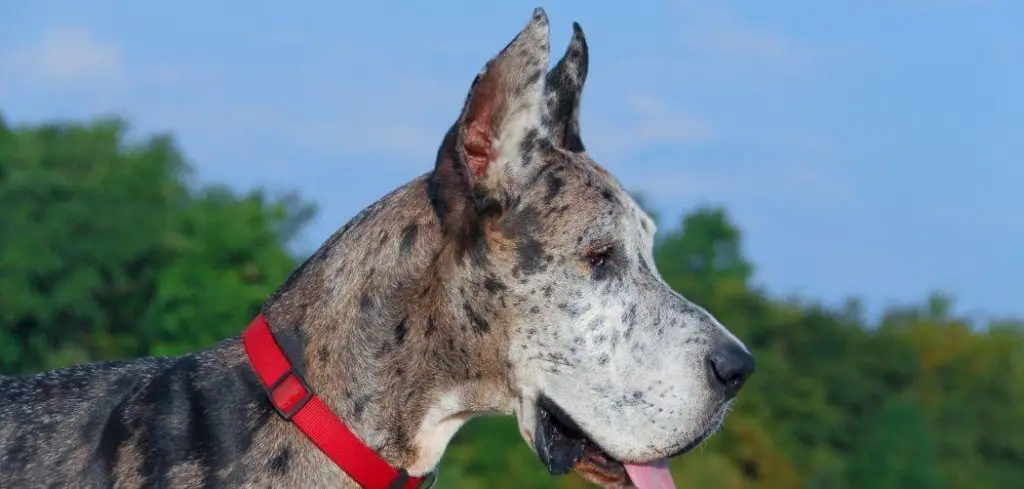Seeing your dog panting and pooping a lot can be alarming and confusing. These symptoms may indicate anything from mild digestive upset to more serious medical conditions that require prompt attention.
We outline the common causes of panting and frequent pooping in dogs, what you can do at home, and when to seek veterinary help.
Dog Panting and Pooping a Lot — Why It Happens
Dog panting and pooping a lot often happen together when the digestive system is irritated or under stress. Common causes include eating spoiled food, sudden diet changes, intestinal parasites, bacterial or viral infections, or even anxiety-related colitis. Certain medications can also trigger these symptoms.
The panting usually reflects discomfort, pain, or dehydration caused by the underlying gut irritation, while the frequent pooping indicates inflammation or an effort by the body to expel irritants.

Dog Panting and Pooping a Lot: Common Causes
Gastrointestinal Upset
One of the most common reasons for panting and frequent pooping in dogs is gastrointestinal upset. Changes in diet, spoiled food, or ingestion of foreign objects can irritate the stomach and intestines, leading to diarrhea and panting as the dog experiences discomfort.
Other signs may include vomiting, bloating, or abdominal discomfort. Persistent GI upset can lead to dehydration, making timely hydration and veterinary evaluation critical.
Read more: Dog Panting and Pooping Blood (Here’s why)
Stress or Anxiety
Stress and anxiety can cause dogs to pant and have increased bowel movements. Situations such as travel, loud noises, new environments, or separation anxiety may trigger this response.
In addition to panting and pooping, dogs may display pacing, whining, drooling, or restlessness.
Creating a calm environment, providing reassurance, and using anxiety-reducing tools can help minimize these behaviors.
Dietary Indiscretion or Food Intolerance
Eating something inappropriate or having a food intolerance can lead to panting and frequent pooping.
Dogs are naturally curious and may ingest non-food items, table scraps, or new treats that upset their digestive system.
Symptoms may include loose stools, gas, bloating, or increased urgency to defecate. Monitoring your dog’s diet and avoiding sudden changes can prevent repeat episodes.
Infections or Parasites
Bacterial, viral, or parasitic infections can result in frequent bowel movements accompanied by panting.
Parasites such as worms, giardia, or bacterial infections can irritate the intestines and make dogs restless.
Signs to watch for include mucus or blood in the stool, vomiting, lethargy, and a generally unwell appearance. Prompt veterinary testing and treatment are essential to resolve the infection and prevent complications.
Pancreatic or Digestive Disorders
Pancreatic disorders, such as pancreatitis, can cause panting and increased defecation.
Inflammation of the pancreas leads to digestive upset, abdominal pain, and sometimes systemic symptoms like fever or lethargy.
Dogs may show signs of nausea, decreased appetite, and discomfort when their abdomen is touched. Pancreatitis can be serious and often requires immediate veterinary care, including fluids and medication.
Metabolic or Endocrine Issues
Conditions such as diabetes or hyperthyroidism can lead to panting and frequent pooping.
These disorders affect metabolism and energy levels, causing dogs to eat more, drink more, and have looser stools.
You might notice weight loss despite increased appetite, increased thirst, or changes in behavior. Early diagnosis and management are critical to prevent long-term health problems.
What to Do If Your Dog Is Panting and Pooping a Lot
Ensure your dog stays hydrated, especially if diarrhea is present, and consider offering a bland diet of boiled chicken and rice if approved by your veterinarian.
Monitor your dog’s stool for changes in consistency, color, or presence of blood or mucus.
Maintain a calm environment to reduce stress, and limit access to potentially harmful foods or foreign objects.
Follow any veterinary instructions carefully, including medication administration or dietary adjustments.
Track your dog’s symptoms, including the frequency of panting and bowel movements, to provide detailed information to your veterinarian.
When to Call or Visit Your Vet
Immediate veterinary attention is warranted if your dog displays:
Persistent or worsening panting accompanied by diarrhea
Signs of dehydration such as dry gums, sunken eyes, or lethargy
Vomiting, blood in stool, or abdominal pain
Fever, weakness, or unusual behavior
Any signs of systemic illness that indicate a serious underlying condition
Prompt veterinary care ensures proper diagnosis and prevents complications from becoming severe.
Read more: Dog Panting and Peeing a Lot (Why it happens)
Key Takeaway
Panting and pooping a lot in dogs can result from a range of causes, from dietary indiscretion and stress to serious medical conditions.
Careful observation, appropriate dietary management, a calm environment, and timely veterinary intervention are essential to ensure your dog’s health and comfort.
